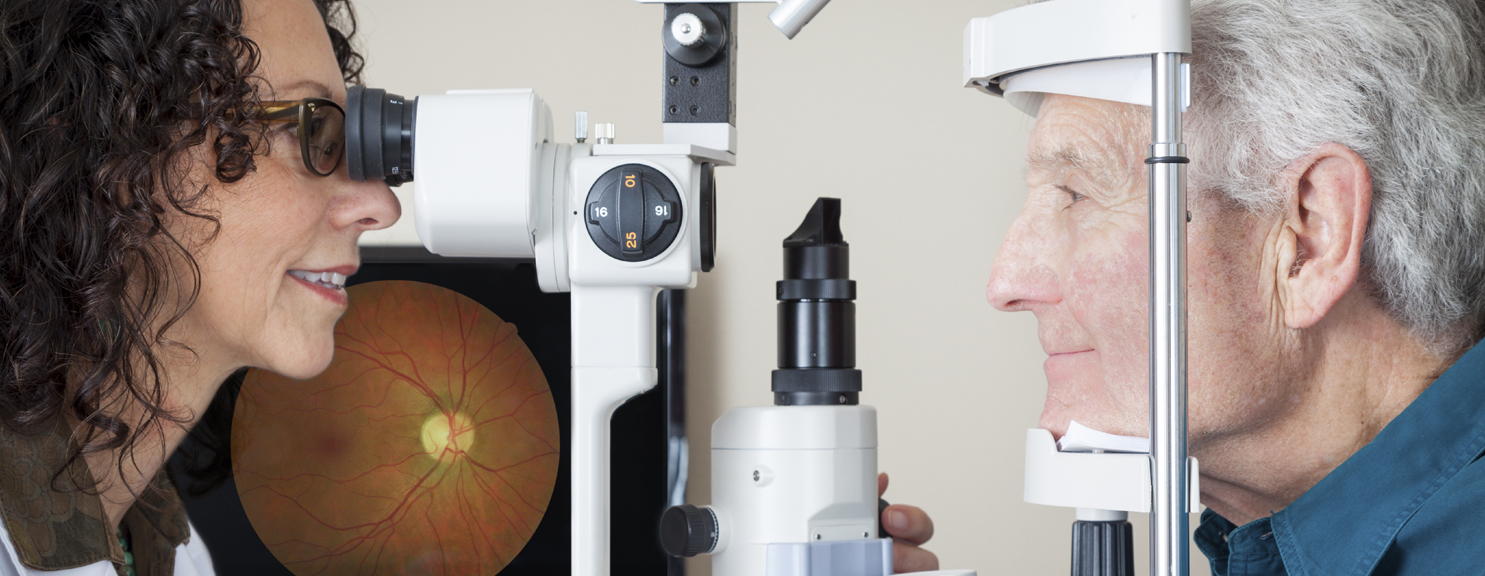What Do Ophthalmologists Do?
Ophthalmologists are medical doctors who specialize in eye and vision care and function, including diagnosing and treating eye diseases and injuries. Eye M.D.s, as ophthalmologists are often called, are specially trained to provide the full spectrum of eye care, from prescribing corrective glasses and contact lenses and medications, to performing complex and delicate surgical procedures of the eye, including laser eye surgery, to prevent the occurrence of eye diseases and correct vision problems. Some ophthalmologists specialize in areas such as glaucoma, corneal disease, or reconstructive surgery. Many Eye M.D.s are also involved in scientific research into the causes and cures for eye diseases and vision problems.
Where Do Ophthalmologists Work?
The majority of ophthalmologists work in private practice and most of them have affiliations with hospitals.
How Much Do Ophthalmologists Earn?
In 2022, the average annual income reported by the Bureau of Labor Statistics (BLS) for ophthalmologists in the United States was $265,450. The New York State Department of Labor (NYSDOL) reports that, in 2023, ophthalmologists in New York earned a median annual salary of $227,613 (ophthalmologists in the 25th percentile made approximately $141,469 while those in the 75th percentile made approximately $360,081).
Supply and Demand
The New York State Department of Labor projects that the number of jobs for ophthalmologists (and all other uncategorized physicians) in the state will increase by 13% between 2020 and 2030. Job growth will occur in this profession because of continued expansion of health care and related industries. The increase in the number of older adults in the U.S. population will also drive overall growth in the need for physician services as these consumers are likely to demand high levels of care using the latest technologies, diagnostic tests, and therapies.
The demand for ophthalmologists, specifically, should increase because of an increasingly older adult population in the U.S. who are likely to need ophthalmology care as well as technological advances in the field and extended health care benefits.
New York Educational Requirements
Students applying to medical school must have at least 90 undergraduate credits, and a bachelor’s degree is preferred. Undergraduate education should focus heavily on science, with courses in physics, biology, and chemistry. Medical school applicants must take the Medical College Admission Test (MCAT).
In addition to four years of medical school with classroom, laboratory, and supervised clinical training, and one year of internship, every Eye M.D. does a three- to four-year residency (hospital-based training) in ophthalmology. During the residency, Eye M.D.s receive special training in all aspects of eye care, including prevention, diagnosis, and medical and surgical treatment of eye conditions and diseases.
Often, an Eye M.D. spends an additional one to two years more beyond residency training in a subspecialty, that is, a specific area of eye care, such as glaucoma or pediatric ophthalmology.
For a list of medical schools in New York, click here.
New York Licensure Requirements
To be licensed in New York, ophthalmologists, like all other physicians, must graduate from an accredited medical school, complete an accredited residency program, and pass medical licensing examinations.
For more information on New York licensure requirements, go to: http://www.op.nysed.gov/prof/med/.
Board Certification
Certification is a voluntary process and is not required, but most ophthalmologists do become board certified by the American Board of Ophthalmology. Certification is granted to Eye M.D.s who successfully complete an accredited course of education in ophthalmology and an evaluation, including an examination process that evaluates both the knowledge and experience of the ophthalmologist through two examinations, a written qualifying examination and an oral examination.
For more information on board certification, go to: http://www.abop.org/become/req/index.asp.
Financial Support
Individual medical schools and residency programs have various financial aid and scholarship programs. Please check with each medical school to discover what options for funding an ophthalmologist education and residency program might be.
Ophthalmology Graduate Medical Education Programs in New York (subject to change)
| Albany Medical Center and the Lions Eye Institute 1220 New Scotland Road Slingerlands, NY 12159 (518) 439-5810 |
Montefiore Einstein College of Medicine Montefiore Medical Center 1300 Morris Park Avenue Bronx, NY 10461 (718) 430-2000 |
| Northwell Health North Shore University Hospital 300 Community Drive Manhasset, NY 11030 (516) 465-8460 |
Bronx-Lebanon Hospital Center BronxCare Eye Care Center 1650 Grand Concourse Bronx, NY 10457 (718) 590-1800 |
| Jamaica Hospital Medical Center 8900 Vanwyck Expressway Richmond Hill, NY 11418 (718) 206-6000 |
Icahn School of Medicine at Mount Sinai One Gustave L. Levy Place New York, NY 10029 (212) 241-0939 |
| NuHealth Nassau University Medical Center 2201 Hempstead Turnpike East Meadow, NY 11554 (516) 572-6706 |
New York Eye and Ear Infirmary 310 East 14th Street New York, NY 10003 (212) 979-4000 |
| New York Medical College Westchester Medical Center Valhalla, NY 10595 (914) 493-7671 |
Columbia University/New York Presbyterian Hospital Edward S. Harkness Eye Institute 635 West 165th Street New York, NY 10032 (212) 342-5293 |
| Weill Cornell Medical College New York-Presbyterian Hospital Weill Greenberg Center 1305 York Ave New York, NY 10021 (646) 962-2053 |
New York University School of Medicine NYU Langone Eye Center 222 E 41st St New York, NY 10017 (212) 263-2573 |
| University of Rochester Medical Center Flaum Eye Institute 601 Elmwood Avenue Rochester, NY 14642 (585) 273-3937 |
Stony Brook University Medical Center State University of New York Health Sciences Center 101 Nicolls Rd Stony Brook, NY 11794 (631) 638-2698 |
| University at Buffalo-SUNY Ross Eye Institute 1176 Main Street Buffalo, NY 14209 (716) 881-7900 |
SUNY Downstate Medical Center 450 Clarkson Avenue Brooklyn, NY 11203 (718) 270-1961 |
| SUNY Upstate Medical University Upstate Specialty Services 550 Harrison Center Syracuse, NY 13202 (315) 464-5253 |
St. John’s Episcopal Hospital 327 Beach 19th St. Far Rockaway, NY 11691 (718) 869-7000 |
Additional Web Links
For additional information on ophthalmologists and eye care, go to:
New York State Ophthalmological Society: www.nysos.com
American Academy of Ophthalmology: www.aao.org
American Board of Medical Specialties: www.abms.org
[whohit]Ophthalmologists[/whohit]

